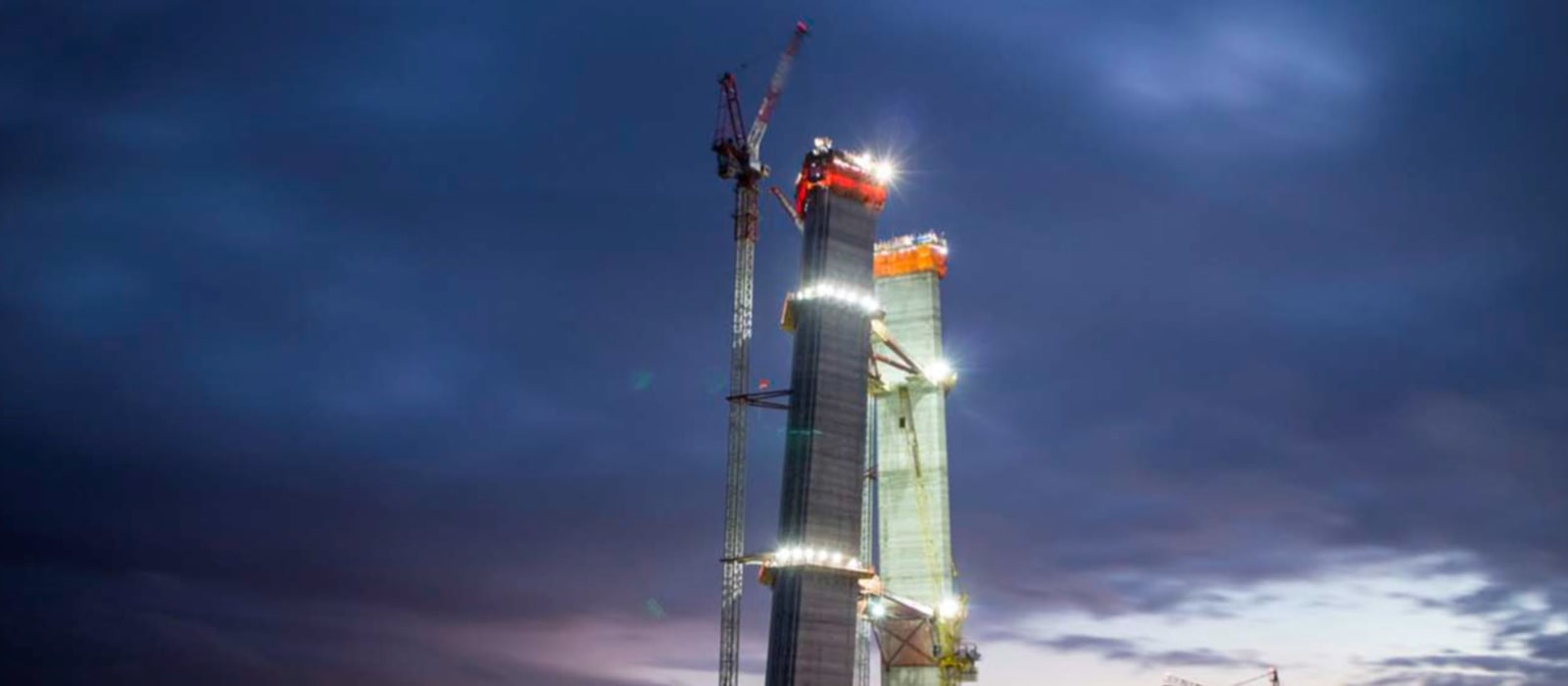NFT tower cranes building $3 billion bridge in Turkey
Two of Potain’s largest luffing-jib cranes are building the third Bosphorus Bridge in Istanbul, Turkey. At nearly 1,300 m long and 59 m wide, the suspension bridge will be the widest in the world with a railroad crossing. The 32 t capacity Potain cranes will work 24 hours a day, every day for the next two years at the ambitious project.
The two Potain MR 615s are owned by NFT, Potain’s local dealer, which operates one of the largest tower crane fleets in the world. Nabil Alzahlawi at NFT says Potain cranes were the clear choice for the epic $3 billion build.
“We have total confidence in our Potain cranes, given their reach, capacity and proven capabilities,” he says. “This third bridge will be crucial to improving the flow of traffic in the city. The sooner it’s built, the better. We have put considerable focus on completing the project on time and within budget and our Potain cranes will play a big part in its success.”
The Potain MR 615s are located on each riverbank and are used for all manner of general lifting duties at the job site. As the build progresses, the cranes will climb alongside the bridge’s pylons to a final working height of XX m. Both cranes are working with full 60 m jibs.
The first Potain MR 615 was erected at the site in 2013, with the second following a few weeks later. Both cranes will remain at the project until work is completed in mid-2015.
Potain’s MR 615 is the largest tower crane in the luffing-jib line. The 32 t capacity crane is designed for the largest and most demanding projects. It features a 245 hp hoist with a maximum drum capacity of 670 m.
Founded in 1994, NFT represents Potain in much of the Middle East. The company has enjoyed rapid expansion, and today it operates a fleet of more than 300 tower cranes and employs hundreds of people worldwide.
The $3 billion third Bosphorus Bridge will carry an eight-lane road and two rail tracks. It is being built as part of the north Marmara motorway project, and aims to reduce congestion on the two existing bridges that cross the Bosphorus Strait, which opened in 1973 and 1988. Also known as the Yavuz Sultan Selim Bridge, the bridge is north of the two other bridges and connects Sarıyer on the European side with Beykoz on the Asian side of the city.

